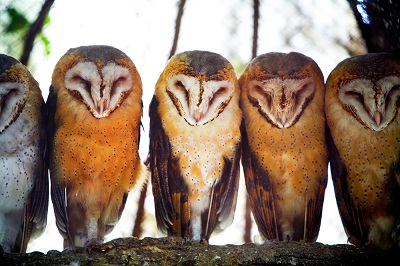Ever find yourself pondering the proper parlance for a gathering of owls? Are you adrift in a sea of linguistic quandaries, unsure whether to say a “flock” or a “herd” of these nocturnal raptors? Fear not, intrepid word wrangler, for we embark on a journey to demystify the capricious world of collective nouns, specifically focusing on the correct appellation for a group of owls.
Collective nouns, those grammatical gems that denote a group as a single entity, can be a source of both fascination and frustration. They add color and precision to our language, yet their diverse and sometimes idiosyncratic nature can lead to confusion. So, what *is* the definitive collective noun for owls? The answer, as with many things in the English language, is delightfully nuanced.
A Parliament of Owls: Unveiling the Accepted Term
The most widely accepted and evocative collective noun for owls is, without a doubt, a “parliament.” This term, steeped in tradition and imagery, conjures visions of wise and solemn owls gathered in a nocturnal assembly, deliberating on matters of great import to the avian world. Its origin is somewhat shrouded in the mists of time, but it is generally believed to stem from the perceived wisdom and contemplative nature of these birds. The image of owls as sagacious creatures, often depicted in literature and folklore as advisors and keepers of secrets, lends itself perfectly to the notion of a “parliament.” This is not arbitrary; it is rooted in a long-standing cultural association.
Why “Parliament” Fits So Well: Exploring the Owl’s Persona
Consider the owl’s physical attributes. Its large, forward-facing eyes, coupled with its deliberate and often silent movements, give it an air of intense focus and observation. It seems to possess a knowledge that surpasses our own. The owl’s hoot, a resonant and often haunting sound, further enhances this impression of wisdom and mystery. It’s a call that echoes through the night, a reminder of the unseen forces that shape our world. Moreover, the owl’s nocturnal habits contribute to its aura of secrecy and hidden knowledge. It operates in the shadows, observing the world from a different perspective than we do. This combination of physical attributes, vocalizations, and behavior makes the “parliament” a remarkably fitting collective noun.
Beyond “Parliament”: Alternative Collective Nouns
While “parliament” reigns supreme, it is not the only collective noun that has been applied to owls. While less common, alternative terms exist, adding further complexity and richness to the linguistic landscape. These alternative terms often highlight different aspects of owl behavior or appearance.
* A Stare of Owls: Emphasizing the Gaze
“Stare” highlights the owl’s intense and unwavering gaze. This collective noun conjures an image of multiple pairs of piercing eyes, fixed upon an unseen prey or a hidden observer. It is a fitting description, given the owl’s remarkable visual acuity and its ability to spot even the slightest movement in the darkness.
The stark directness of “stare” offers a compelling alternative to the more formal and stately “parliament.”
* A Wisdom of Owls: Reinforcing the Perception
“Wisdom,” while less frequently used than “parliament,” directly acknowledges the long-standing association between owls and sagacity. This collective noun serves as a succinct and direct reminder of the owl’s perceived intelligence and its role as a symbol of knowledge and understanding. Though seemingly redundant, the straightforward nature of “wisdom” has a certain appeal.
The Importance of Context: Choosing the Right Term
The choice between “parliament,” “stare,” “wisdom,” or indeed any other proposed collective noun, often depends on the specific context. “Parliament” might be most appropriate when emphasizing the owls’ collective deliberation or their perceived wisdom. “Stare” might be more suitable when focusing on their intense gaze or their hunting prowess. The key lies in selecting the term that best captures the essence of the group and the situation at hand. A playful approach is acceptable, though “parliament” remains the gold standard. If unsure, “group of owls” is always a safe and grammatically sound alternative. Do not succumb to the temptation of inventing new terms, unless you are prepared to defend your neologism against the scrutiny of grammarians and ornithologists alike. Remember, language is a living entity, constantly evolving and adapting, but it also adheres to certain conventions and standards. So, while creativity is encouraged, accuracy and clarity should always be paramount.
A Final Thought: The Enduring Appeal of Collective Nouns
Collective nouns, like “parliament” for owls, add a touch of whimsy and artistry to our language. They remind us that words are not merely tools for communication, but also instruments of imagination and creativity. They allow us to see the world in new and unexpected ways, to find beauty and meaning in the most ordinary of things. So, the next time you encounter a group of owls, remember the “parliament,” the “stare,” the “wisdom,” and let your imagination take flight.
